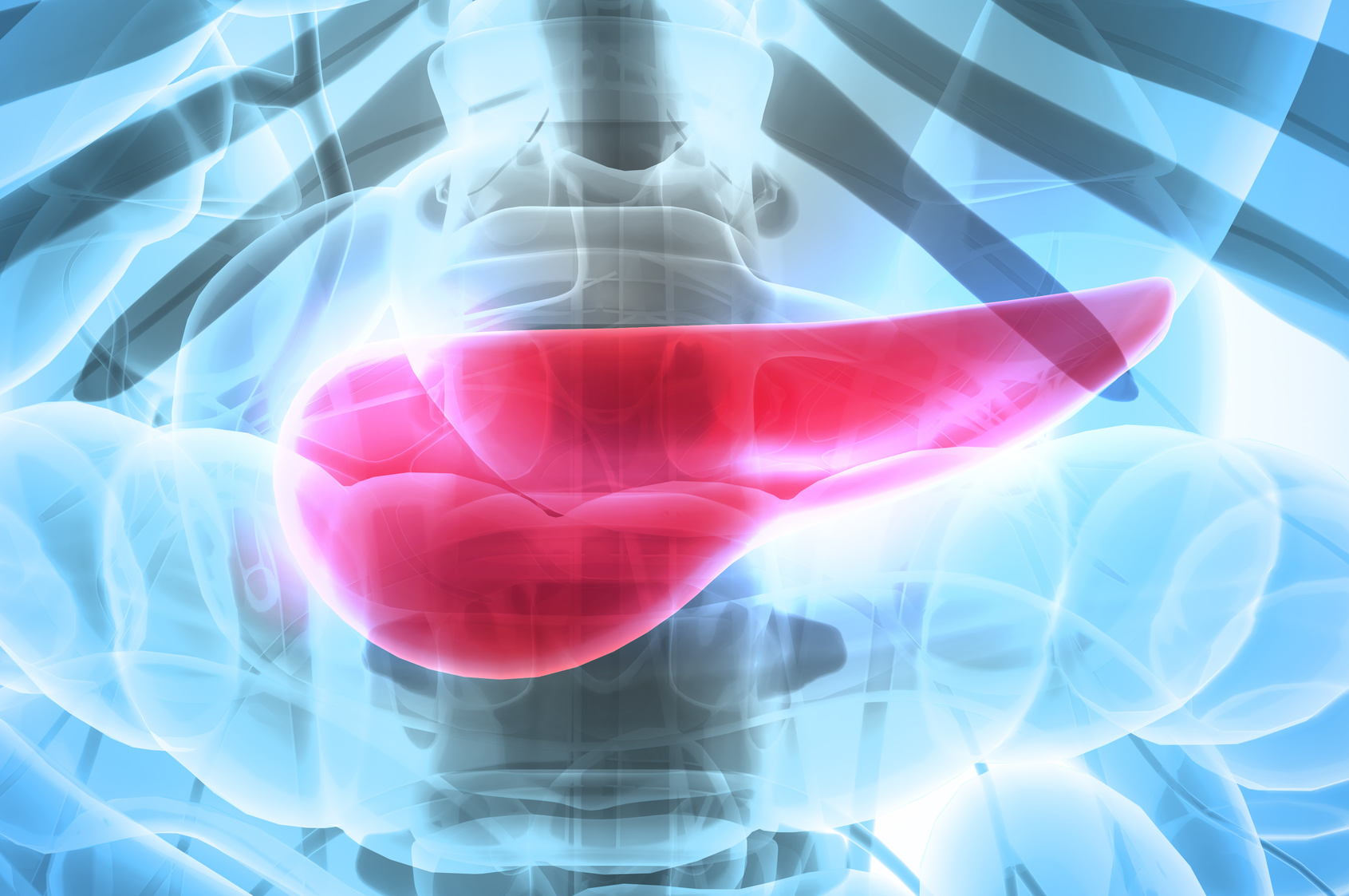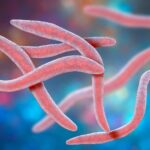-
What is already known on this topic
Pancreatic cancer is the seventh most common cancer in Europe, killing more than 95,000 people every year. In the European Union, the incidence of deaths caused by pancreatic cancer has increased by 5% between 1990 and 2016, according to a recent report. However, despite the rise in death rates, research on effective treatments is lagging behind. -
What this research adds
The study sheds light on the impact of the microbiota on pancreatic cancer progression, showing that the bacteria in a cancerous pancreas are distinct and significantly more abundant than those in a non-cancerous pancreas, in both mice and humans. In mice, removing bacteria from the gut and pancreas slowed cancer growth and triggered immune cells to react against cancer cells. -
Conclusions
The study offers an insight into how microbes could promote pancreatic cancer. Its results suggest that modulating the microbiota could help to treat pancreatic cancer by increasing the efficacy of some cancer therapies and slowing tumor growth.
The microbiota of a cancerous pancreas is significantly different and larger than that of a non-cancerous pancreas, according to a study published in Cancer Discovery. Smruti Pushalkar and her colleagues at the New York University (NYU) College of Dentistry and NYU School of Medicine have shown that removing bacteria from the gut and pancreas slows cancer growth and triggers immune cells to react against cancer cells in mice.
Pancreatic cancer is the seventh most common cancer in Europe and kills more than 95,000 people every year. Life expectancy at the time of diagnosis is less than 5 months and only 3% of patients survive for 5 years. A recent report by United European Gastroenterology shows that, in the European Union, the incidence of deaths caused by pancreatic cancer has increased by 5% between 1990 and 2016.
However, despite the rise in death rates, research on effective treatments is lagging behind. Pancreatic cancers are resistant to both chemo- and immuno-therapies, and currently the only curative approach is resection of the pancreas, which is technically challenging. Because microbial dysbiosis has been associated with the development of several cancers, including stomach, colon and liver cancers, the researchers examined the role of gut and pancreas bacteria in the development and progression of pancreatic cancer.
A cancerous pancreas harbors a larger microbiota than a non-cancerous pancreas
First, the team looked at whether gut bacteria can access the pancreas. After giving mice fluorescently-tagged Enterococcus faecalis and Escherichia coli, the researchers noticed that the bacteria were able to migrate to the pancreas. Further analyses showed that bacteria in both mouse and human pancreatic cancer tissues were significantly more abundant than those in normal pancreas.
Next, the researchers sequenced the bacterial DNA from the pancreatic cancer tissue from 12 patients to characterize their pancreatic microbiota. The microbiota composition of pancreatic cancer tissues was distinct from that of normal human pancreas, and was enriched in species such as Proteobacteria (45%), Bacteroidetes (31%), and Firmicutes (22%).
Bacteria could promote the progression of pancreatic cancer
To assess whether bacteria promote pancreatic cancer progression, the researchers used a mouse model of pancreatic cancer, called KC. Germ-free KC mice were protected against cancer progression compared to KC mice colonized by bacteria. Similarly, mice injected with pancreatic tumor cells developed about 50% less cancer cells after being treated with antibiotics, suggesting that bacteria promote the progression of pancreatic cancer.
Next, the team looked at the gut microbiota composition of KC and wild-type mice over 9 months to identify changes associated with cancer progression. The most abundant bacterial species, Bacteroidetes and Firmicutes, didn’t change over time in the two groups. But Actinobacteria increased by about 60% in KC mice by week 20, whereas they didn’t in wild-type mice. Also Deferribacteres and Bifidobacteria became more abundant in KC mice compared with wild-type mice from weeks 28 to 36 and 13 to 36, respectively.
Similarly, the gut microbiota of patients with pancreatic cancer and healthy people were both dominated by Firmicutes and Bacteroidetes, but Proteobacteria, Synergistetes, and Euryarchaeota were significantly more abundant in patients with pancreatic cancer.
To test whether bacteria trigger the development of pancreatic cancer in genetically predisposed mice, the researchers used antibiotics to remove gut bacteria in KC mice and then transferred into their guts the feces from either wild-type or KC mice. The animals that received feces from KC mice showed increased tumor growth, whereas those that received feces from wild-type mice didn’t.
Bacteria trigger cancer progression by suppressing immune cell function
The researchers hypothesized that the microbiome promotes pancreatic cancer progression by suppressing immune cell function. Indeed, removing bacteria with antibiotics caused a substantial increase of T cells and a reduction of myeloid-derived suppressor cells within the cancer tissue. Antibiotic treatment also increased the CD8:CD4 T-cell ratio within the tumor, which is associated with enhanced immunogenicity, and caused an increased production of pro-inflammatory molecules such as TNFα and IFNγ.
To confirm the protective immune effects associated with the removal of bacteria, the team took T cells from pancreatic tumors in control and antibiotic-treated mice. Then, they transferred the T cells to mice that had been injected with pancreatic tumors. Mice that received of T cells from control mice were not protected from pancreatic cancer, while those that received T cells from antibiotic-treated mice developed about 50% less cancer cells.
The researchers hypothesized that the immune tolerance promoted by the pancreatic tumor-associated microbiota is the result of higher pattern recognition receptor (PRR) activation in the tumor microenvironment. Consistent with this hypothesis, the team found that gut bacterial extracts from KC mice induced higher activation of some PRR reporter cell lines compared with gut extracts from wild-type mice. Pancreatic tumors in antibiotic-treated mice showed a substantially lower expression of PRRs compared with pancreatic tumors in control mice.
In summary, the study found that eliminating bacteria with antibiotics slowed pancreatic tumor progression and reduced the number of cancer cells by about 50% by restoring the ability of immune cells to recognize cancer cells. The authors speculate that the most abundant species found in pancreatic cancers – including proteobacteria and actinobacteria – release cell membrane components such as lipopolysaccharides and proteins such as flagellins, which prevent immune cells from attacking the tumor.
Overall, the results suggest that modulating the microbiota could increase the efficacy of some cancer therapies and slow tumor growth, thus opening new avenues for pancreatic cancer treatment.











